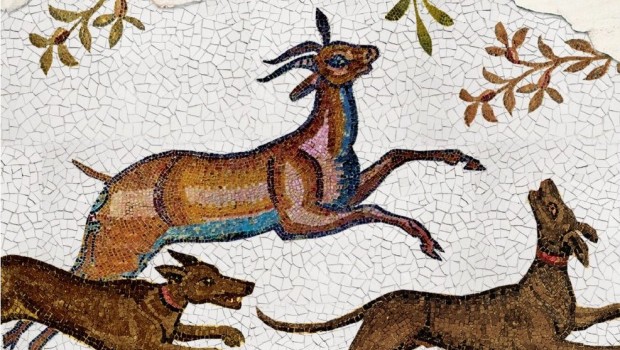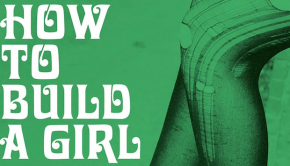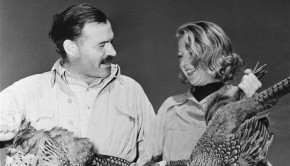The Hired Man by Aminatta Forna
Gost is surrounded by mountains and fields of wild flowers. The summer sun burns. The Croatian winter brings freezing winds. Beyond the boundaries of the town an old house which has lain empty for years is showing signs of life. One of the windows, glass darkened with dirt, today stands open, and the lively chatter of English voices carries across the fallow fields. Laura and her teenage children have arrived. A short distance away lies the hut of Duro Kolak who lives alone with his two hunting dogs. As he helps Laura with repairs to the old house, they uncover a mosaic beneath the ruined plaster and, in the rising heat of summer, painstakingly restore it. But Gost is not all it seems; conflicts long past still suppurate beneath the scars.
The Memory of Love by Aminatta Forna
Alfred Hickling, The Guardian
“Forna brilliantly portrays the atmosphere of festering tension in which perpetrators of the most grotesque acts of violence continue to live side by side, the trauma of the recent past disregarded by an influx of moneyed incomers too ignorant to realise that the wildflower meadows remain untilled because of unexploded mines. ”
Hannah McGill, The Scotsman
“Forna skilfully maintains and manages Duro’s secrets, before – just when you care enough to be devastated – letting them struggle to the surface and reveal themselves. She crafts a story that initially seduces with intense and vivid physical detail, low, sour wit and a suggestion of romance, before twisting – without the reader even fully registering – it into a knotty, powerfully ambiguous allegory for collective trauma and negotiation with historical pain. Yet The Hired Man also operates as a whodunit and a thriller. ”
Joy Lo Dico, The Independent
“The pacing of this novel is stunning. After an edgy beginning, it blooms into joyousness halfway through when the mosaic is restored, and then the cruelty begins to flow.”
Lewis Jones, The Daily Telegraph
“The Hired Man is about the importance of memory and, if not of forgiveness exactly, then truth and reconciliation. Unlikely as it may be in terms of male psychology, Duro’s attitude to Fabjan and Kresimir is reminiscent of Forna’s stepmother in The Devil that Danced on the Water, who took pity on one of those who bore false witness against her husband, when fallen on hard times, and hired him as a cook. By such acts we must learn to live with the past.”
Adrian Turpin, The Financial Times
“The forest provides The Hired Man’s most striking imagery, from wolves snapping at the weakest in the pack, to the wild boar, once almost extinct but thriving since their hunters were driven away by war. At times, the book – or at least its narrator – seems resigned to war as part of the natural order, a cycle of savagery that will endure as long as humanity exists. A more optimistic counterpoint is found in the mosaic, a symbol of civilisation eradicated but painstakingly restored. In The Hired Man, optimism wins in the end, just. But there are no easy reconciliations.”
Frances Perraudin, The Observer
“With her beautifully precise style, Forna sensitively depicts members of a community resuming day-to-day life after violent civil conflict – each with the knowledge of the heinous crimes they committed against one another. The Hired Man is an ingenious examination of the kind of ghosts that those with no experience of civil war are unable to see.”
Lucy Popescu, Times Literary Supplement
“Forna is eloquent on the far-reaching consequences of ethnic hatred. ”
Helen Dunmore, The Times
“Duro’s voice carries the narrative with a solidity and complexity that is very satisfying. He is an inward, solitary man, but at the same time intensely aware of his surroundings, alert to small shifts in behaviour, as a good hunter must be. However, Forna is less successful in her handling of heightened moments, such as Duro’s reaction in the aftermath of an atrocity. He might well take refuge from horror in cliché — “My heart is beating wildly, the blood rushes to my head” — but throughout this scene the writing lacks the necessary force and clarity.”
Harry Ritche, The Daily Mail
“The dual present/past narrative has become a cliche in recent literary fiction – but it’s one that Aminatta Forna uses here with terrific skill and insight.”
Thea Lenarduzzi, Literary Review
““In the course of renovating the house, the family uncovers a mosaic. The coloured stones become a symbol of history daubed over, no sooner restored than vandalised again with white paint. The trope is reminiscent of the runic fragments that punctuate the narratives in Ancestor Stones, yet Forna seems to have lost faith in the reader’s ability to discover the subtler meanings unaided. The Hired Man is less lyrical, giving explanation where none is necessary”
OMNISCORE:












